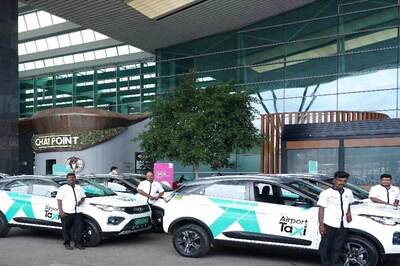
views
BANGALORE: L B Shastrinagar, composedly nestled a few kilometres away from the old HAL Airport emanates a happy fragrance. As the clock strikes six and the sun creeps up to the east of the horizon, they step out of their homes and dump their baskets laden with wet wastes into compositors placed in their apartment premises. After about eight to ten weeks, the wet waste breaks down into manure and they use it to tend their blooming gardens. Thanks to the collective mindset, most people in the locality are part of this initiative.Three years ago, little did hard core techie Suresh Kumar think that a seminar on environment would usher in a breath of fresh air in his locality. “I attended a seminar on environment and realised that it’s time we do something to sort out the waste in our area,” he recalls. What began with just ten families in his apartment has now expanded to seven apartments. Every day, they segregate the wet waste from the dry. The former makes its way to compositors that they bought from Daily Dump, while the latter is sold to Kabaddiwalas. They have a separate process to sort out e-waste as well. “If the e-wastes are mixed in the soil, it can be toxic. There is a common collection point for e-waste. People dispose wastes such as batteries, bulbs, CDs and in these containers. We have tied up with Ash recylers, a certified e-waste management company. They take the waste and segregate it scientifically,” points out Suresh. He further adds that due to the high disposable income and also because food items come in disposable packets, the waste that is generated from each house is quite large. “All the waste go to the dumping yards and it takes a long time for them to degrade. Most food items don’t get exposed because they are in plastic bags,” says Suresh. He also points out another problem. “As the city is expanding, the garbage has to be dumped in places that are quite far away. This increases the transportation costs,” he notes. “We are trying to reduce the waste that is generated from each household. If 1,000 kilogrammes of waste is going out of the house, it can be cut down to at least 200 kg, if the garbage is segregated at the source,” points out Suresh.In 2006, the Resident’s Welfare Association (RWA) in L B Shastrinagar, started working on an anti-plastic drive. When the RWA came across Suresh Kumar a couple of years later, they joined hands and started brainstorming together for the betterment of the locality. The RWA, christened Uthkarsh, presently has two teams — anti-plastic team and waste management team. Apart from helping apartments set up composting machines, rain water harvesting and encouraging the use of cloth bags that they distribute, they also educate children about the environment. “Kids have to be nurtured the right way. We have to sow the seeds at the right age,” smiles Suresh.

















Comments
0 comment